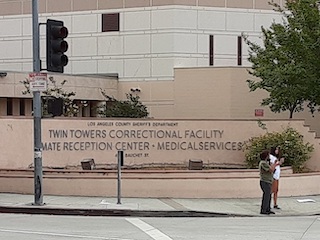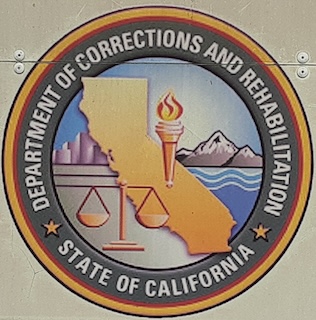One does not need to request such a hearing. It will be set by the CDCR.
However, if one is told that he or she is ineligible and believes this is wrong, you or your attorney can submit a “Form to Contest Disqualification by Board of Parole Hearings as a ‘Youth Offender,’” which is available at www.cdcr.ca.gov/BOPH/YOPH.html. One can complete this form and mail it to the Board of Parole Hearings, P.O. Box 4036, Sacramento, CA 95812-4036.
 Twin Towers Sign
Twin Towers Sign
If one was under 26 when he or she committed the crime(s) at issue and is truly ineligible for a Youth Offender Parole Hearing, one should consult with an attorney about filing a petition for a writ of habeas corpus (first in state court) on grounds that the sentence imposed is a violation of the Eighth Amendment prohibition on cruel and unusual punishment because the sentence is so long that that release is so many years away, i.e., 130 years, that there is no realistic chance of ever being released. In speaking to the attorney, you may become aware of other arguments that may apply specifically to your case (i.e., SB 1437, if murder was involved).
Alternatively, if one committed a crime as a juvenile (under age 18) and the judge did impose an LWOP sentence, and the person is ineligible for a Youth Offender Parole Hearing one can file a petition for resentencing to a shorter sentence under Penal Code § 1170(d)(2) (Senate Bill 9) after that inmate has served fifteen years in custody.
Lastly, if one committed a crime as a juvenile and the judge imposed an LWOP sentence and the person is ineligible for a Youth Offender Parole Hearing and SB9, one can file a petition for writ of habeas corpus on grounds that the sentence violated Miller v. Alabama (2012) 567 U.S. 460, 132 S. Ct. 2455, 183 L. Ed 2d. 407. Such a petition should be filed in state court first and later, if denied, in federal court.
For more information about youth offender parole hearings and Franklin Hearings, please click on the following articles:
 CDCR Emblem
CDCR Emblem Twin Towers Sign
Twin Towers Sign